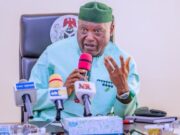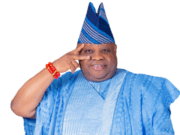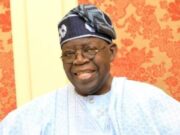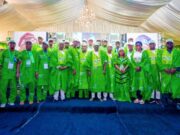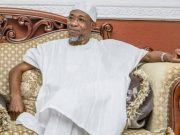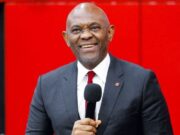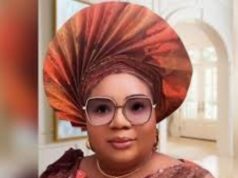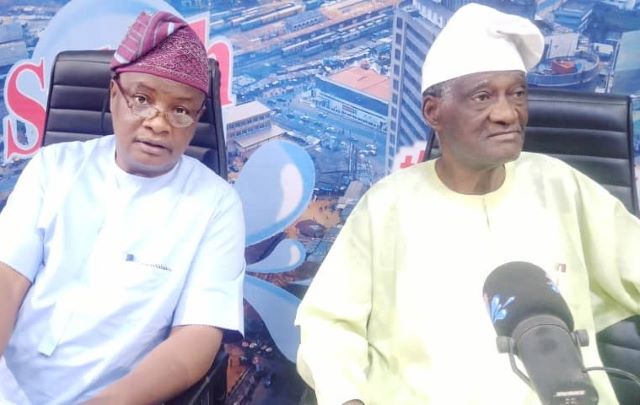
Prince Adetowo Aderemi, is a culture promoter, historian, archivist and one of the sons of late Ooni of Ife, Oba Adesoji Aderemi. The Ife-born prince was our guest on our Radio Shows, Parrot Xtra/Ayekooto anchored by Olayinka Agboola on Splash 105.5FM, recently. During the interaction, he shed light on the reasons behind the dwindling respect accorded Yoruba monarchs and the institution they represent. He also spoke about many other salient issues… Excerpts:
As a prince, can you recount your experience growing up within the Ooni’s palace in Ile-Ife?
In those days, the palace was like a general household, a house to all, even though the palace had a gate, it was never locked, it was a house to all and no thief dared come visiting.
Thief? What will he come to steal, the king’s crown? Even if he steals the crown, where will he take it to?
There was no limitation to entering the palace or relating with the whole household. You eat anywhere, stay anywhere and relate closely without people discovering whose son or daughter you were. There was this communal relationship among the children of the King even though it was a huge polygamous family.
The palace was like a community house, even the king’s bedroom was never locked. Only a crazy man/woman would think of stealing anything there, all was safe, not like now where the palace is guarded by security dogs, the dogs that are meant for Ogun, the god of iron in those days.
What will you say was your late Dad’s greatest achievement as the Ooni of Ife?
He kept the peace in Ile-Ife, he ensured that peace reigned supreme- especially in Modakeke-a quota in Ife called Iraye. It is these later days’ Ooni that created the turbulence between Ife and Modakeke. During my father’s 50 years reign, there was not a single day that there was an uprising, although there small, small skirmishes but before they got serious, he always sorted them out.
Modakeke was populated by refugees from other parts of Yoruba land, but my father’s disposition was that Ife is a home for everybody. Therefore, any Yoruba man who feels discomforted or misplaced in his area can come to Ile ife and live. He maintained cordial relationship with the people.
The Ooni’s throne has since been occupied by two others, without being sentimental, what do you think has changed?
We have to be very factual. I must confess to you, the method of choosing the Ooni has changed.
I read it somewhere where you said Ifa is supposed to be consulted before a new Ooni is chosen…?
Ifa has slept, they have kept it in a corner. It has been made irrelevant in Yoruba land, this is the pure truth. Everything has been politicized and monetized.
Now, the Emeses–town chiefs who were never that powerful in the palace have now become the ones they consult before making decisions. There is no culture in the selection again. The culture has been overturned, now the servant has become the ruler in the house.
I remember in 1977, when Ife indigenes in Lagos invited my father the Ooni to a program, we were even the one who begged him to go, even at that he did not stay beyond two hours, he went there just to make an appearance, that was when Kingship still had honour, not anymore now. Now, a king can call you and you may not honour it. That is how far we have gone, that is how bad things are.
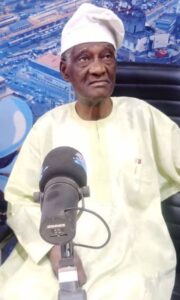
The news about the assassination of two kings in Ekiti, the Onimujo of Imujo and the Elesun of Esun Ekiti really trended. Was that development not tantamount to sacrilege…that Yoruba kings were shot dead?
In 1978, while I was still working with Top breweries, they did a bachelor’s eve there, the king of a town near Osogbo was there and he got himself drunk to stupor, a King at bachelor’s eve? Everything has scattered since monetization and politicization took the front burner in the installation of Yoruba kings. A king is supposed to be seated in the palace, but now kings attend naming ceremonies, they even hug now.
The ancient kings did not even exchange handshakes, it was when the whites came that kings began to do that. People didn’t use to see the face of the Ooni, it was a sacrilege.
As I was saying, in those days, people normally would not have access to the King. During the Olojo festival, whenever my father puts on the sacred ‘Are’ crown on his head, his face would change, his eyes would become so red like hot firewood, it would be so obvious that he had been taken over by the spirits.
Now, I don’t even think there is ‘Are’ again, or the ones we have now are fakes. The one I saw then, it is only the Logun that has the authority to carry it and no one else and this is only done once in a year during Olojo’s festival.
There was a time I told my father I could carry it, and he gave me the go-ahead, but it was so heavy that I couldn’t lift it. The Logun came, brough out a white cloth and placed it on it and he carried it like feather. That was the ‘Are’ crown that I could not carry, that was a serious demonstration of spiritual power! These days, I do not even think the Ooni puts the Are on his head.
Where did we get it all wrong then?
Since Kingship has become political. Although, it started with our colonial masters who reduced them to almost nothing. There was one year when the Queen of England visited the Atta and told him to remove his cap, he warned them of what could happen afterwards, they insisted, he did and bees came out and stung every one of them. That was another height of spiritual power!
In the real sense of the word, how powerful were Yoruba Kings in those days?
When the local government reform started, Oranmiyan LGA was the only local government at Ile-Ife, but the military governor then, Governor David Jembewon came one day and declared that he had created three new Local Government Areas, namely Oranmiyan North and Oranmiyan South and ordered the people to stop paying tribute. My father was on the seat but he said nothing, the next day he wrote a letter to the Military President, General Olusegun Obasanjo through the Alake of Egbaland…that he did not want more than one LGA at Ile-Ife. When Obasanjo heard this, he dispatched messengers to the Government House in Ibadan to warn Jemibewon to rescind his decision. It was around 12pm the next day that Jemibewon came to the palace to apologize to Ooni Aderemi with a promise to stop the move, which he did two days later. My father even threatened him that if he did not cancel the creation of the local governments he would be removed and replaced by another person. That was the power of a King back then. Now, even the local government chairman orders the kings around.
What do you think can be done to restore the pride and dignity of the traditional institution especially in Yorubaland?
Everything boils down to the fact that the processes of selecting and installing a typical King have been seriously politicized and monetized.
It is also the same thing as the processes involved before one gets politically elected. When I wanted to join politics in 1978, my father told me that politics was good, but today, corruption and other vices have crept into it. There was a time when a notable politician asked me if I could kill in order to get a political position. There are no more good people in politics.
Also, I remember when I was asked to give fifty thousand naira to some individuals to purchase ‘ata’ (bullets), I told them the money was much thinking it was for the purchase of pepper not knowing it was meant for the purchase of bullets for political thugs during an electioneering period. I cried out and backed out of the deal. Politics have been bastardized.
What do you think about Kings who claim to be Muslims or a Christians?
There is nothing hindering a king from choosing between being a Muslim or a Christian, but it is necessary for them to practice our traditional religion. However, that is not happening. In the ancient days, when a King goes beyond the laid down rules, the chiefs could collectively dethrone such a king or he would be asked to ‘open the sacred calabash’.
Can you shed more light on the Local government reforms of 1957 that you mentioned earlier?
In 1957 when the reformation was about to start, my father said it would be a good development only when the Local government chairman is the king, but they refused that it would be election based. He then said if that decision would stand, a king should not be in the council because if that happens, kingship would go into extinction. And, this is already gradually happening.











